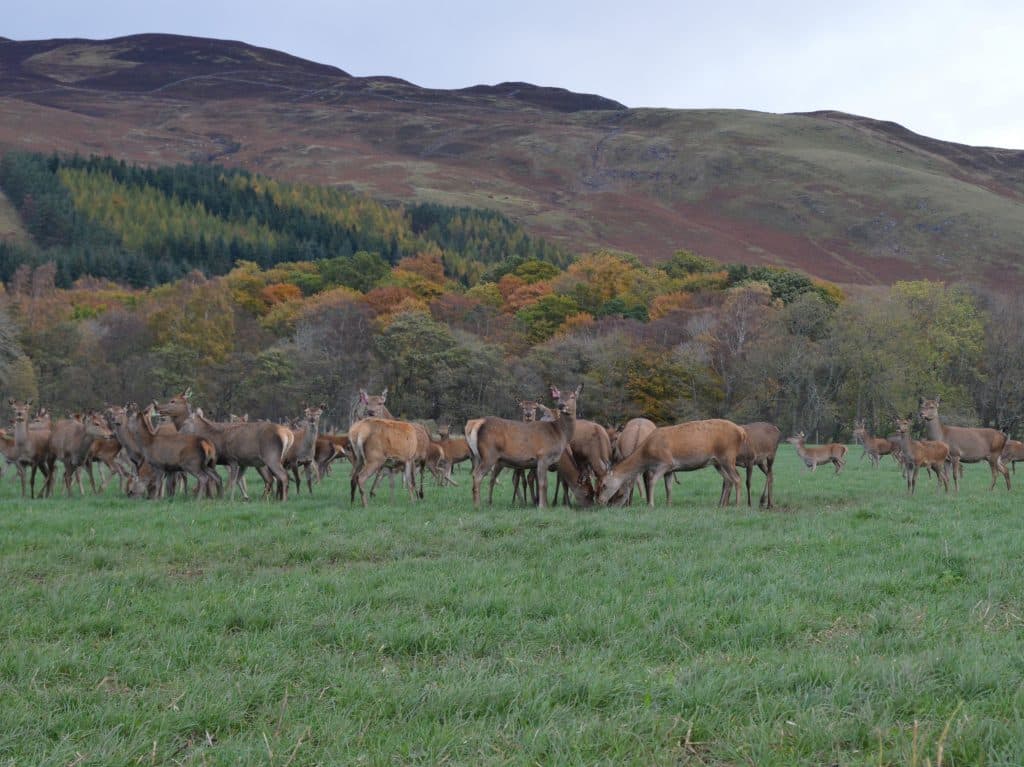Public consultation announced for Killearn beauty spot Finnich Glen
Rob Whitson is to join Bell Ingram as Partner and will take responsibility for running the company’s offices in Inverness and Bonar Bridge.
Rob, who was formally with Strutt & Parker in Inverness where he headed their Rural Department, will lead on Bell Ingram’s estate management and professional work in the north of Scotland.
Graham Lumby, Managing Partner at Bell Ingram, said: “Land reform legislation, Brexit, and many other issues affecting the rural economy are continuing to challenge anyone with an interest or involvement in land or estate management. Having experienced professionals who can provide expert advice and be readily accessible in the locality is essential.”
The appointment of Rob Whitson means that our clients have a senior and highly skilled professional to support them during these challenging times.”
Since moving to Inverness, the former army officer has had extensive experience in Highland estate management, including deer and fisheries management, and brings with him expertise in valuations, renewables and forestry.
Rob said: “My background in surveying and the military has equipped me with a whole host of transferrable skills that I’m looking forward to applying to my work at Bell Ingram. I hope I can give clients the support required to optimise their rural businesses in the north of Scotland.
“Bell Ingram is a highly trusted and respected firm of land and property agents. It gives a national service which is delivered locally, so they’re very aware of the localised issues in their area.
“Our industry faces a varied and broad spectrum of political and economic issues such as land reform and Brexit. The role of the land agent is also changing as people’s expectations change, so we have to adapt and continue to provide a first-class service to clients.”
Bell Ingram is also advancing its operations in different parts of the country with two further appointments.
Andrew Fuller joins the Oban office as an Associate Estate Agent following almost 15 years managing high-level private and corporate development projects in the United Arab Emirates.
With substantial experience in property management and investment, Andrew is now focused on making the Oban office the premium rural Estate Agency in the Western Isles and wider mainland region.
Andrew said: “The range of expertise that Bell Ingram provides and the variety of sectors that it covers is remarkable so I’m looking forward to applying myself to a company that encompasses a great many of my key interests.
“Working in Oban is never dull. The west coast is a buoyant market, and despite Brexit approaching, the mind patterns of buyers have not changed. People aren’t holding back when it comes to island properties, especially with the increasingly popular buy-to-let property market and the rise of services such as Airbnb. My commute from the Isle of Mull to Oban alone makes it all worth it. With stunning scenery and ever-changing conditions – there really is no place like it.”
Thomas Rust also joins the expanding company as an Assistant Land Agent after graduating with a degree in Rural Business Management from Scotland’s Rural College (SRUC) earlier this year.
His interest in land management was realised during his time working in the forestry sector in the North East of Scotland.
Thomas said: “What draws me to rural land management is the opportunity to work outside and the wide scope of things you get to deal with on a day-to-day basis.
“From agriculture and forestry to renewables and pipeline management, the variety of work is exciting, and it is fulfilling to be in a position of being able to provide valuable professional advice to landowners. I’m excited to put my head down, learn from the experienced colleagues around me and develop my skills.”
Our people

Rob Whitson
Partner, MRICS
Rural Land Management, Valuations
Tel: 01463 717 799
About: Rob is Bell Ingram’s partner in charge of the Beauly office. He specialises in the management of rural properties for a range of private clients across the Highlands. This has included a number of significant and high profile sporting estates. For Land Management clients, Rob has worked on the negotiation of purchase/sale, servitude rights and renewable energy developments. He provides specialist management advice over a wide range of sporting estates particularly in relation to red deer stalking and salmon fisheries. Rob has enjoyed a long involvement with a number of district salmon fishery boards across the Highlands, and is a trustee of the Cromarty Firth Fishery Trust. He is Chair of the Highland Region for Scottish Land & Estates and also leads on valuations of commercial and rural property throughout Scotland in accordance with the RICS appraisal and valuation standards. Interests: Private Estate Management, Rural Land Management, Sporting Management, Valuations.
Article posted on 14/08/2018












